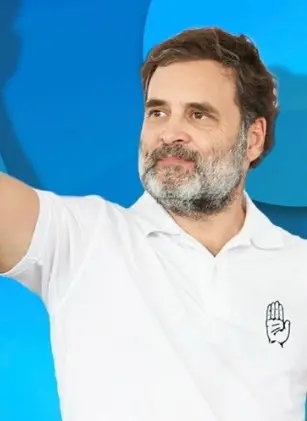
Congress leader Rahul Gandhi has pleaded not guilty in a Pune court over defamation charges linked to his remarks on V.D. Savarkar.
I. The Courtroom Clash: Rahul Gandhi Pleads Not Guilty
Rahul Gandhi vs Savarkar – On July 11, 2025, Congress MP and Leader of Opposition Rahul Gandhi pleaded not guilty in a Pune court in response to a criminal defamation complaint filed by Satyaki Savarkar, the grandnephew of Hindutva ideologue Vinayak Damodar Savarkar. The complaint stems from Gandhi’s controversial remarks made during a speech in London in March 2023, where he allegedly referenced a passage attributed to Savarkar involving communal violence.
The plea was recorded by Gandhi’s lawyer Milind Pawar, as the Congress leader was granted permanent exemption from physical appearance. The court, presided by Judge Amol Sriram Shinde, read out the charges under Section 500 of the Indian Penal Code, to which Pawar responded, “No, I do not plead guilty” on Gandhi’s behalf.
The next hearing is scheduled for July 29, when the trial will proceed with witness testimonies and evidence presentation. The case has drawn national attention, not only for its legal merit but for its potential to reshape political narratives ahead of the 2026 general elections.
II. Political Reverberations: Legacy, Ideology, and Public Sentiment
The defamation case has reignited ideological fault lines between the Congress and BJP, with Savarkar’s legacy once again at the center of public discourse. Supporters of the Hindutva icon argue that Gandhi’s remarks were false, malicious, and defamatory, aimed at tarnishing the image of a revered freedom fighter. The complainant, Satyaki Savarkar, claims the statements caused mental distress and public humiliation to the family.
Congress leaders, meanwhile, maintain that Gandhi’s comments were part of a broader critique of right-wing nationalism, and that the case is politically motivated. The party has rallied behind its leader, framing the trial as an attempt to silence dissent and criminalize political speech.
Social media has been ablaze with hashtags like #SavarkarControversy and #RahulGandhiTrial, reflecting a deeply polarized public. While some hail the legal proceedings as a defense of historical truth, others see it as a distraction from pressing national issues.
III. Historical Sensitivities and Legal Precedents
The controversy touches on a sensitive chapter in India’s freedom movement. V.D. Savarkar, a polarizing figure, is celebrated by some for his role in the independence struggle and criticized by others for his Hindutva ideology and alleged complicity in communal narratives. Gandhi’s remarks whether accurate or not have reopened debates on freedom of expression, historical accountability, and political defamation.
Legal experts note that defamation cases involving public figures often hinge on intent and verifiability. If the court finds Gandhi’s statements to be factually incorrect and malicious, he could face penalties under Section 500 IPC, including fines or imprisonment. However, the defense may argue that the remarks were made in a political context, protected under free speech provisions.
This case could set a precedent for how political speech is interpreted in Indian courts, especially when it involves historical figures. It also raises questions about the limits of criticism, the role of legacy in modern politics, and the responsibility of public leaders in shaping discourse.
Stay updated with the latest news on Rapido Updates. Keep yourself updated with The World, India News, Entertainment, Market, Automobile, Gadgets, Sports, and many more